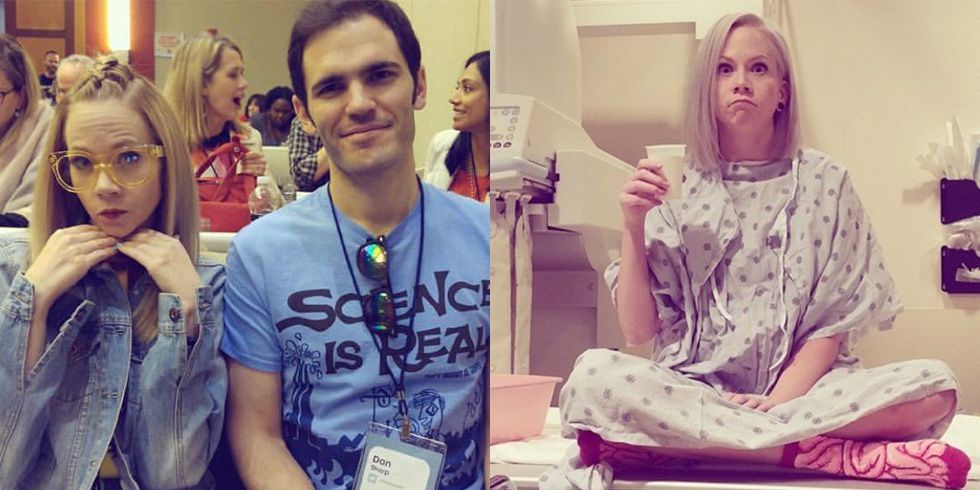Yes, Crohn’s Can Impact Your Eye Health. Here’s What You Need To Know.

Even if you don’t suffer from the cramps, abdominal pain, and diarrhea that typically come with Crohn’s disease, you probably know that Crohn’s is a chronic inflammatory bowel disease—as in, it affects the gastrointestinal tract.
But because Crohn’s is a form of immune dysfunction, it’s also considered a systemic disease—one that can affect other parts of the body, too, explains Sashidhar Sagi, MD, a gastroenterologist at Indiana University Health. Symptoms that show up outside of your GI tract are called extraintestinal manifestations (EIMs), and research shows that they occur in 25 to 40 percent of people with inflammatory bowel disorders.
EIMs can impact your skin, joints, liver, and your eyes. In fact, as many as 12 percent of people with Crohn’s disease experience minor to serious eye complications, according to a research paper published in the Journal of Crohn’s and Colitis.
Wait, how can Crohn’s impact my eyes?
“Crohn’s is an autoimmune disease, and autoimmune diseases occur when the body’s immune system has been sensitized to attack normal body tissues,” explains Nathan Hamburger, MD, an ophthalmologist at UCHealth Yampa Valley Medical Center. “There’s enough similarity between the tissue in the digestive system and some tissues found in the eye that the immune system will attack both.”
According to Sagi, there are three eye conditions associated with Crohn’s disease:
- Episcleritis: This develops when the tissue between the clear and outermost layer of the eye becomes inflamed. Symptoms include redness, mild pain, and sensitivity to touch.
- Uveitis: This develops when the tissue underneath the white layer of your eye becomes inflamed, resulting in redness, light sensitivity, pain, and blurred vision. If left untreated, uveitis can lead to glaucoma and vision loss.
- Dry eye syndrome (aka keratoconjunctivitis sicca): This occurs when tear glands become inflamed and cause white deposits to form in the cornea. Symptoms may include itching, burning, or infection. Keratopathy, a type of corneal disease, may also develop.
So, how can I keep my eyes healthy?
While these conditions are rare, the best way to prevent Crohn’s-related eye problems is to work with your gastroenterologist to ensure your getting the proper treatment, Hamburger says.
Yearly eye exams are also vital, as they can help ensure you’re not developing undiagnosed problems, Hamburger says. Early detection can be a game-changer in terms of both successful treatment and preserving healthy vision.
What should I do if my eyes start bugging out?
If you’re having a Crohn’s flare and notice any problems with your eyes (such as blurred vision, pain, redness, or dryness), see a doctor immediately, Sagi says. In many cases, getting the symptoms under control can be enough to resolve eye issues. Depending on the problem, your doc may also prescribe steroid eye drops, topical vasoconstrictors, or even vitamin A supplements.
Source: Read Full Article

